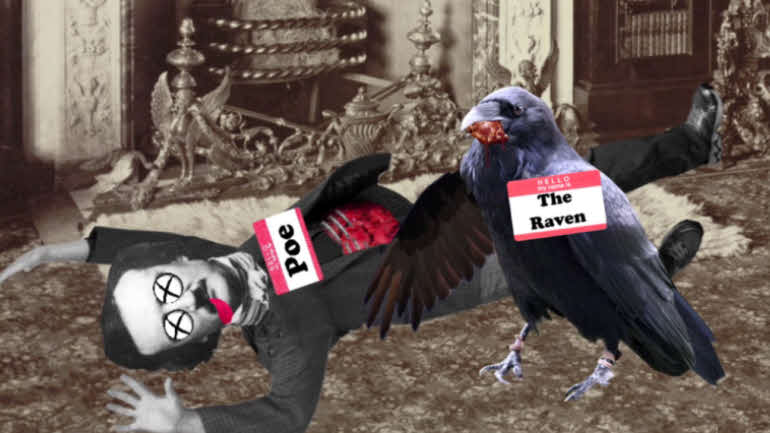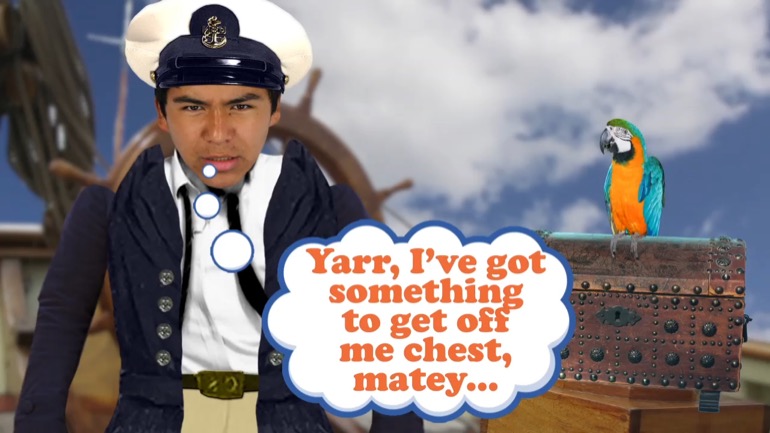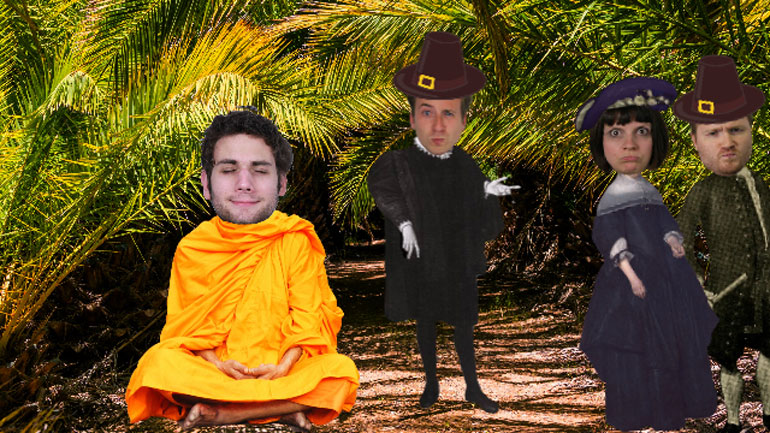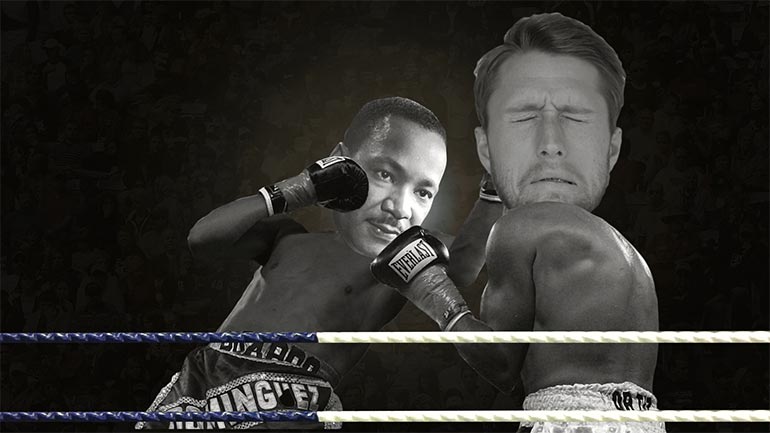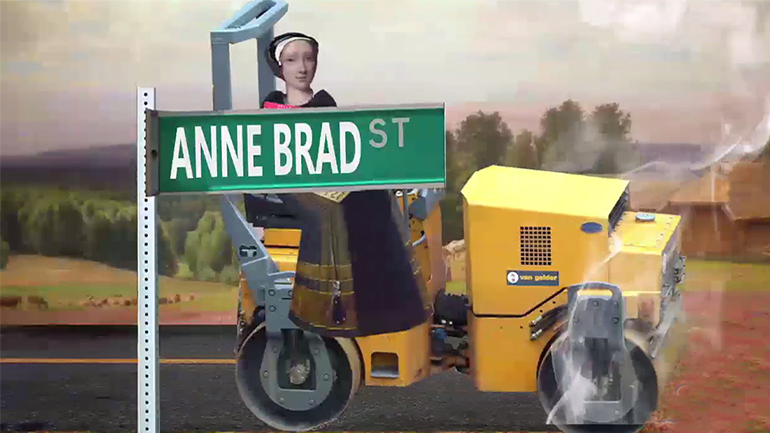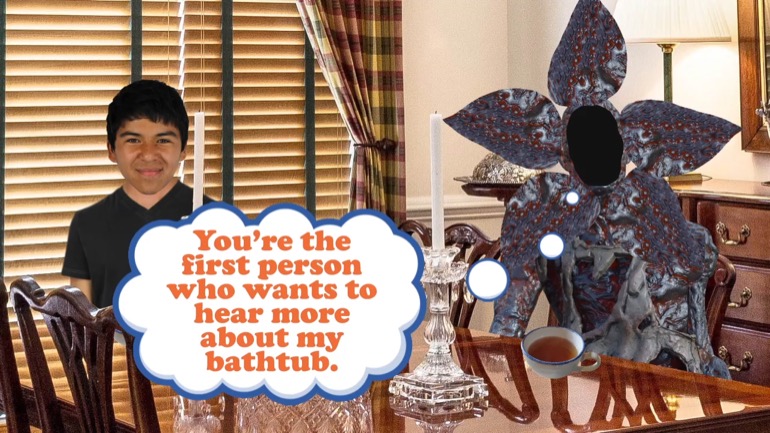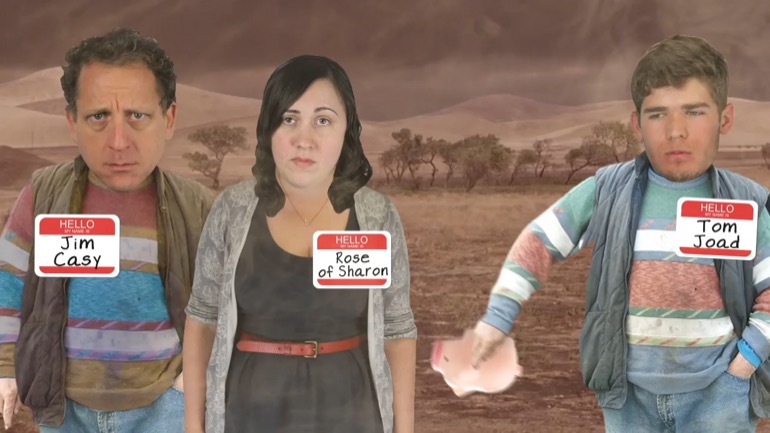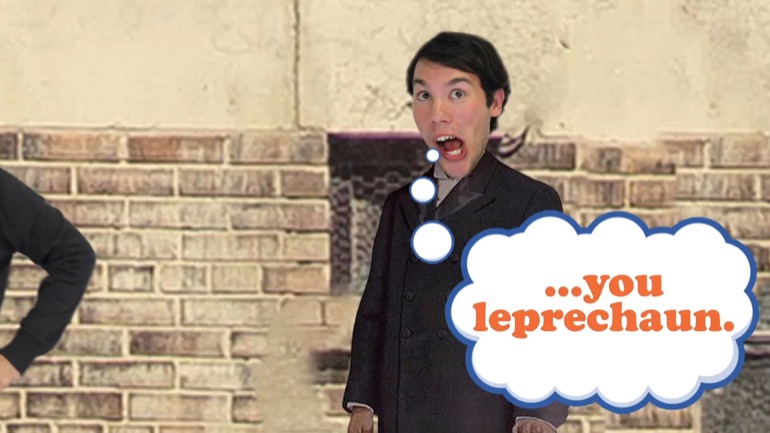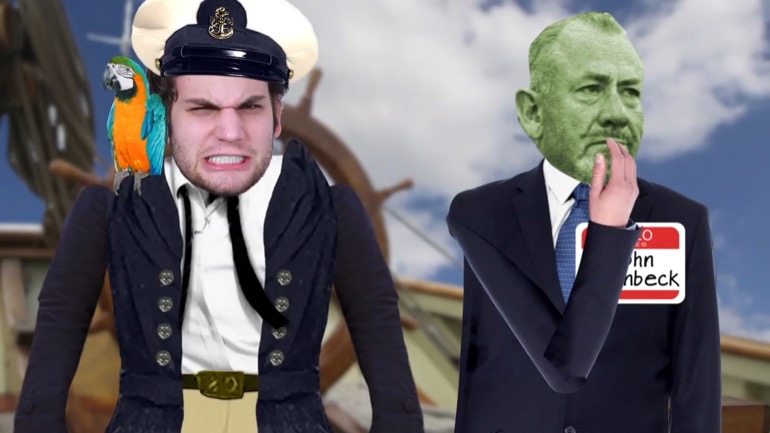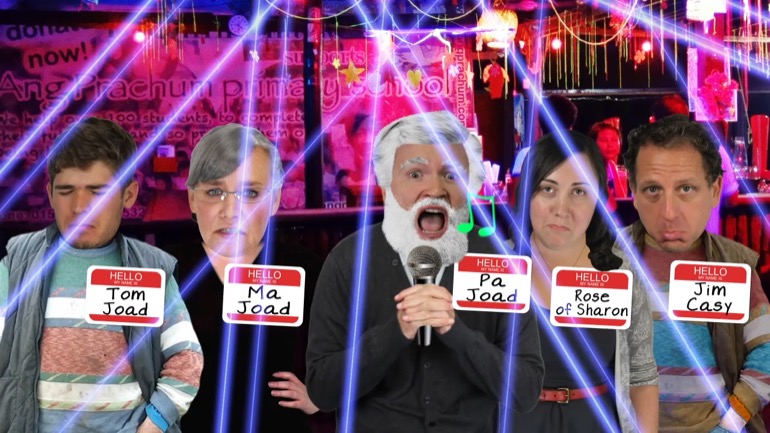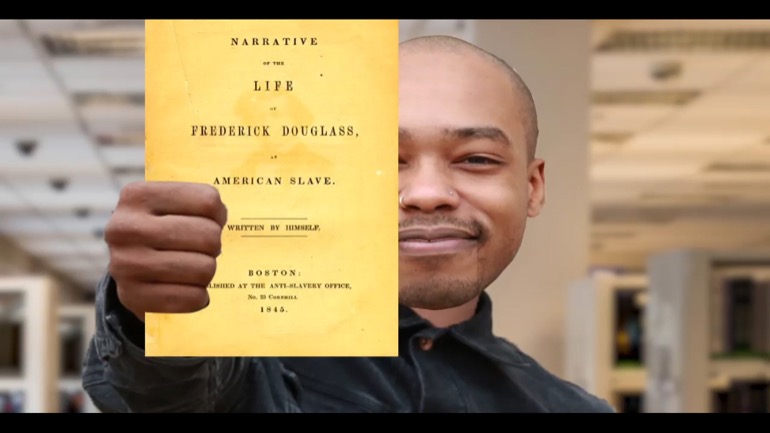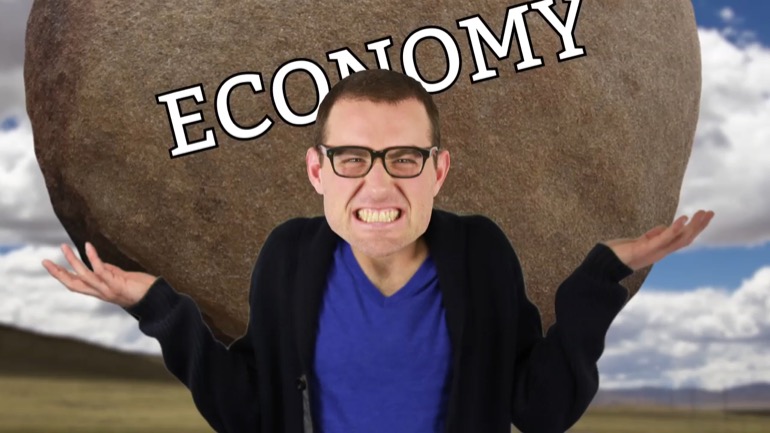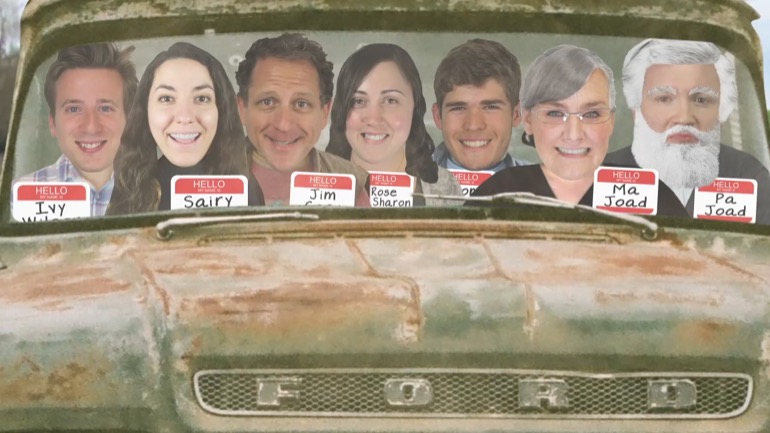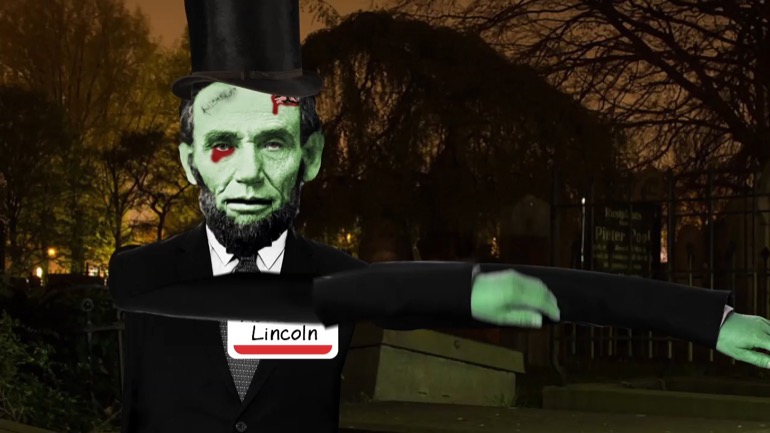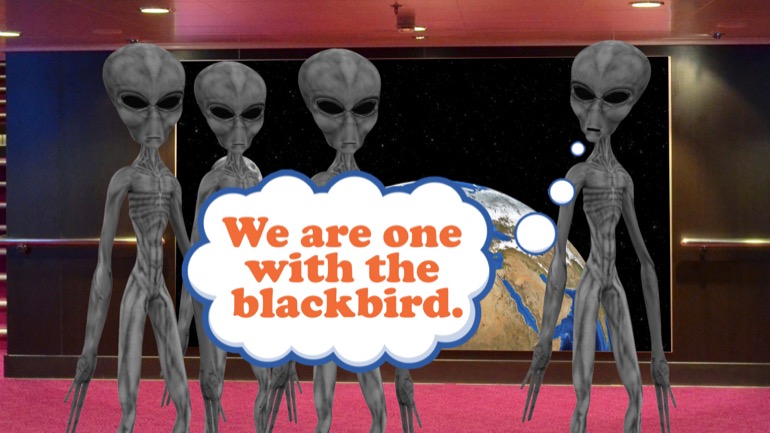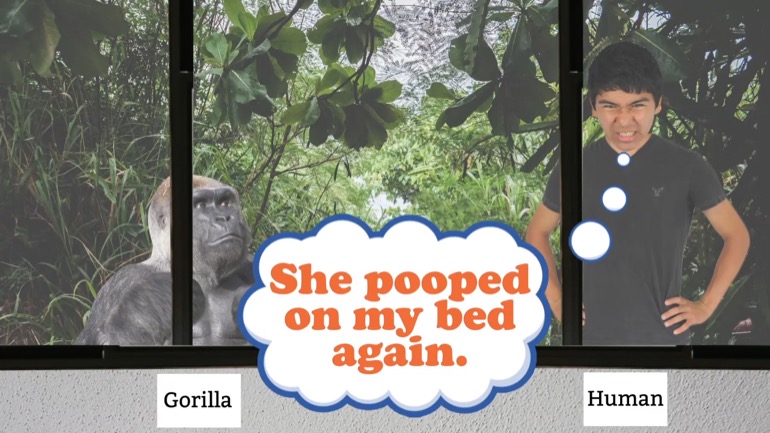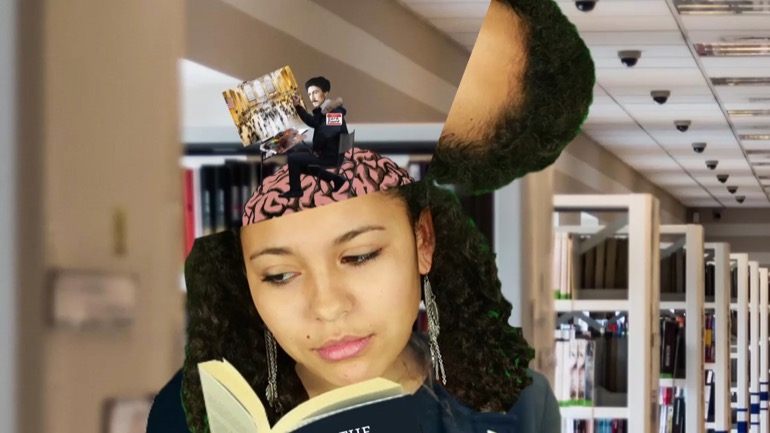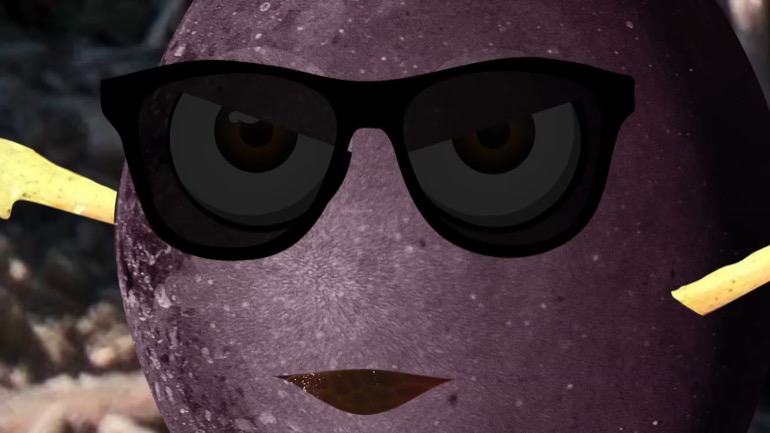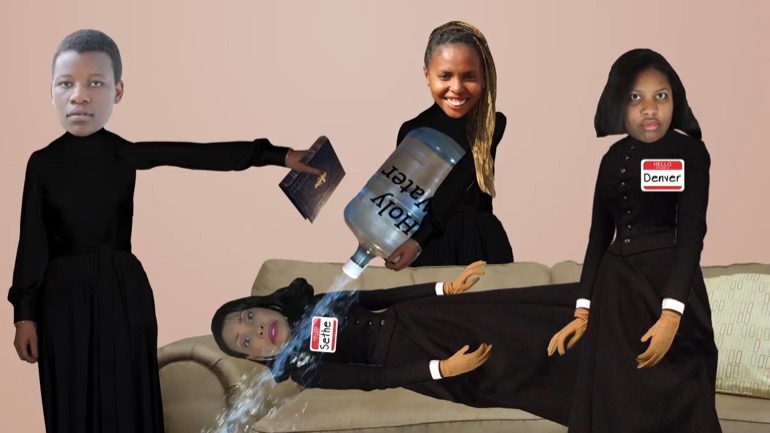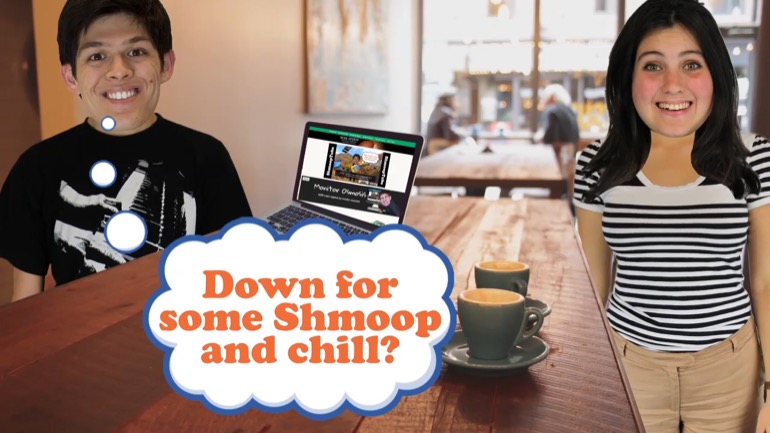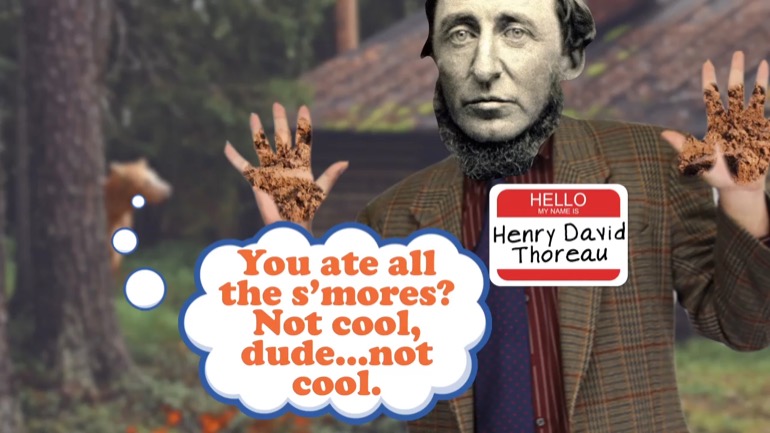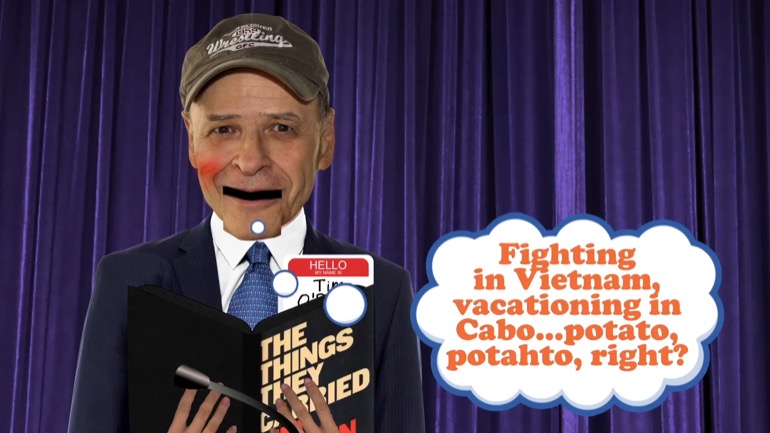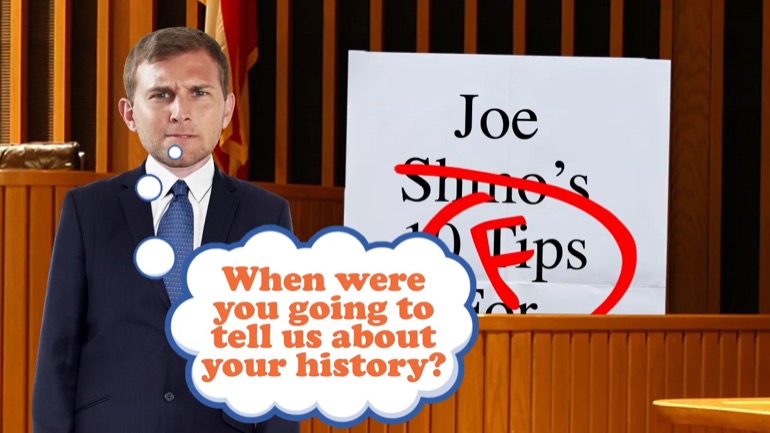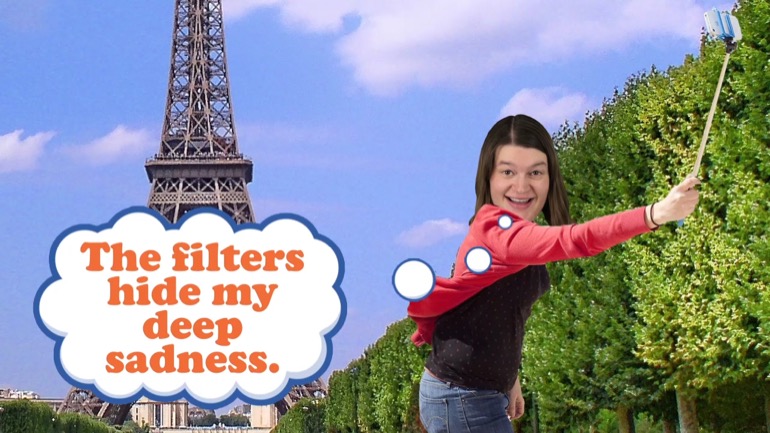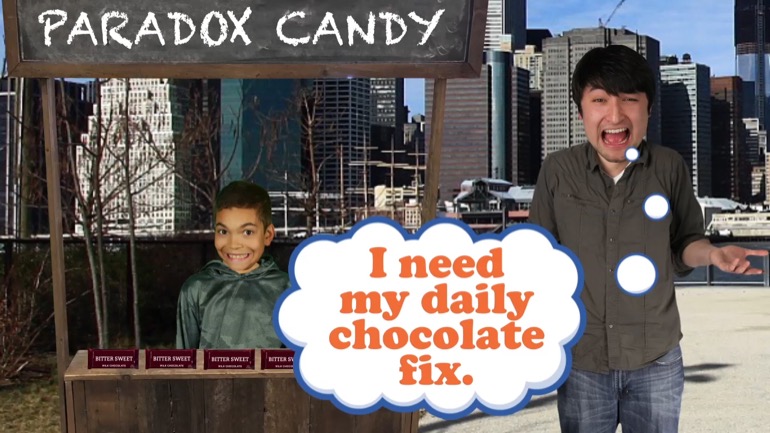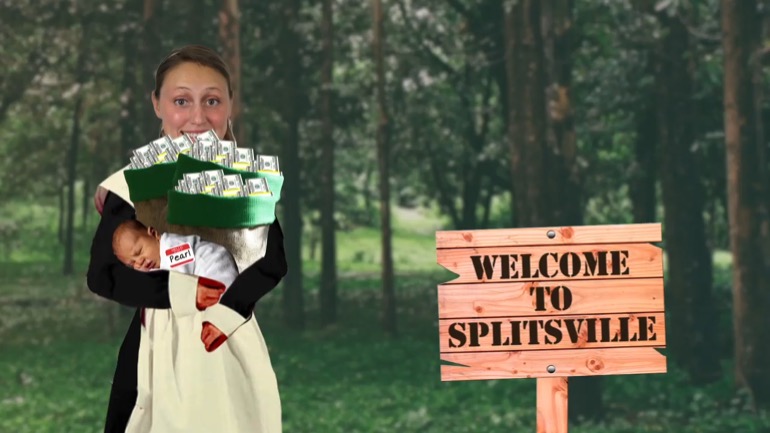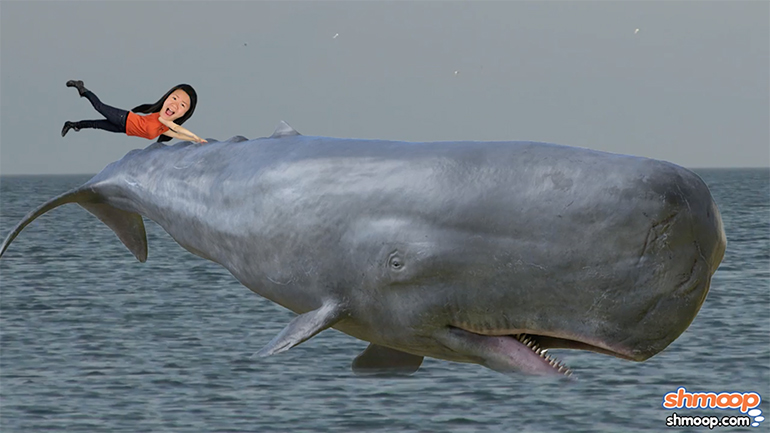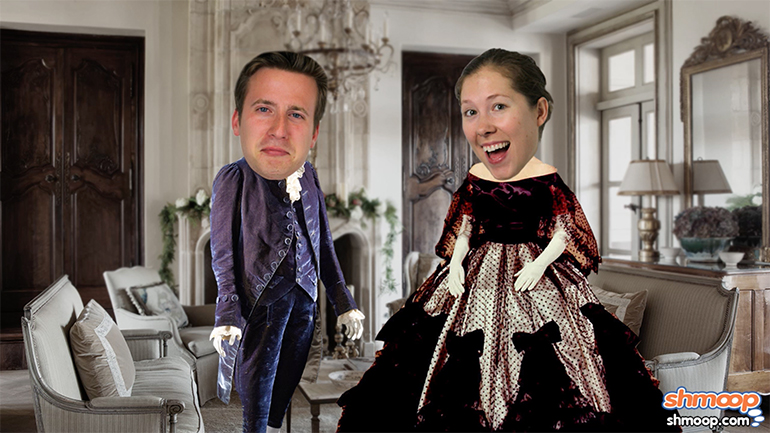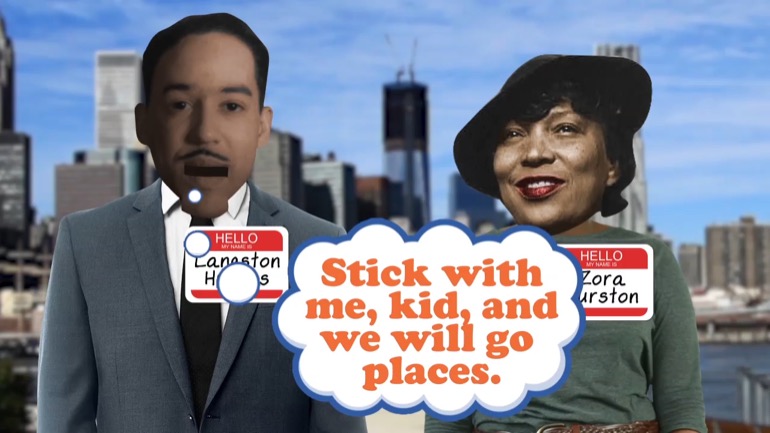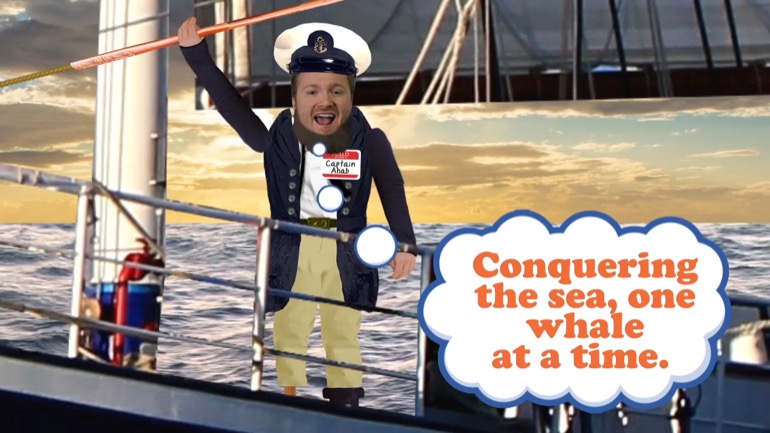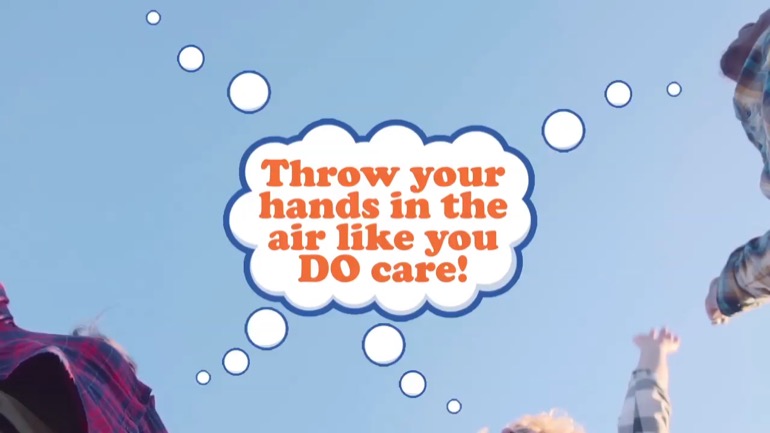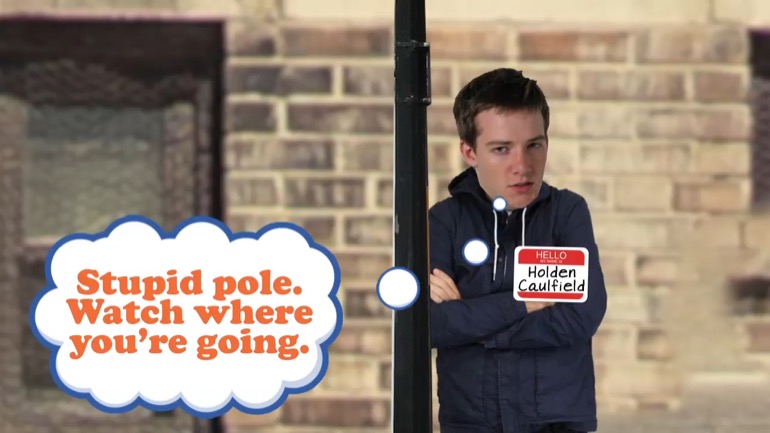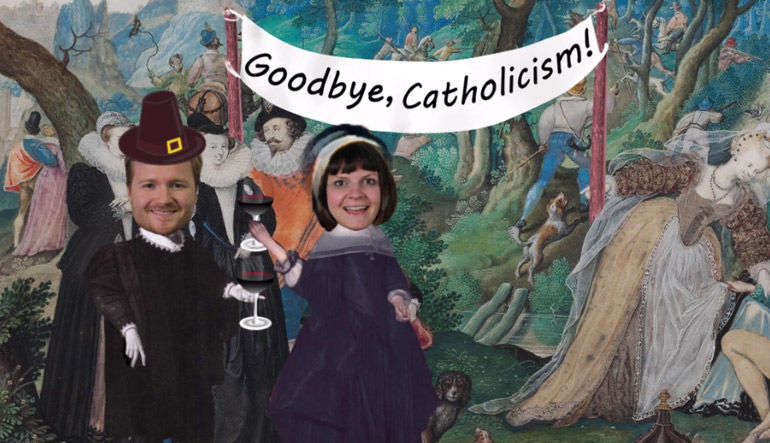ShmoopTube
Where Monty Python meets your 10th grade teacher.
Search Thousands of Shmoop Videos
American Literature Videos 58 videos
What do you get when the guy who wrote “The Raven” makes a serious effort to write in verse? Poe-try… Now, when you’ve detached your eyes f...
Incidents in the Life of a Slave Girl, abridged. Ready? Go.
Emily Dickinson: Along with Van Gogh, proof that you’re never really famous until you’re dead.
American Literature: Activism 2118 Views
Share It!
Description:
How did Jacob Riis and Stephen Crane contribute to the Crusade for Activism? Easy: they opened a lemonade stand in their front yard and contributed fifty percent of their profits. ...Okay, maybe that's not true and they did some other stuff, but you'll have to watch this video to find out.
Transcript
- 00:01
No activism Stephen crane and jacob reese activism It sounds
- 00:08
pretty active No no no Analysis that maggie never jacob
- 00:19
rees duch i guess that makes it remember email Okay
- 00:25
school this is what democracy looks like Yeah activism happens
- 00:31
to be a subject very near and dear to my
Full Transcript
- 00:34
heart I've been to more protests than i can count
- 00:38
so i'm actually uniquely suited for the subject of the
- 00:41
day activism in the late eighteen hundreds And what about
- 00:45
activism in the seventeen hundreds Or even earlier you might
- 00:49
ask didn't exist If you try to speak out against
- 00:51
authority you'd lose your head quite literally But now that
- 00:55
democracy was on the upswing in the eighteen hundreds the
- 00:58
masses suddenly had an opportunity to talk trash to the
- 01:02
people in charge We call that activism will be looking
- 01:05
at the works of two epic activist today stephen crane
- 01:08
and his novel maggie a girl of the streets and
- 01:11
jacob rees a legendary photographer of his era Both of
- 01:14
these men fought the man on inspired social change using
- 01:18
just words and photographs will kick things off with stephen
- 01:21
crane's novel maggie a girl of the streets The novel
- 01:24
is about a girl named maggie which i think you
- 01:27
might have guessed she lives In a bad part of
- 01:29
town in the bowery in new york city to be
- 01:32
specific this is what the barry looked like back then
- 01:36
Maggie comes from a family of irish immigrants which to
- 01:39
readers of cranes day would emphasize her low social standing
- 01:43
Quick aside you've got to remember the context in which
- 01:46
the novel was written At the time irish immigrants who
- 01:49
were newcomers to america were viewed as well not even
- 01:52
human more like animals to most people different was bad
- 01:56
No thank you They hated the new immigrants and their
- 01:59
strain foreign culture their bazaar irish food incomprehensible slaying and
- 02:04
even their religion catholicism's which was thrown a lot of
- 02:08
shade by the majority protestant residents of america On top
- 02:12
of that americans accused the irish of taking their jobs
- 02:15
which sure doesn't sound familiar now Nope Anyways maggie's home
- 02:19
life isn't great Her little brother jimmy is your average
- 02:22
hooligan and there do well and her mom hits the
- 02:25
bottle hard But maggie is different She has appear heart
- 02:29
so you could understand why she swept off her feet
- 02:32
when she meets pete who's not only a total stud
- 02:35
but also might be our ticket out of the hood
- 02:37
There is just one problem Mom and jimmy despise maggie's
- 02:41
new babe So much so in fact that they boot
- 02:43
maggie out of the apartment And as if family drama
- 02:47
wasn't enough jimmy also chooses tell beat the crap out
- 02:50
of pete Yeah he's That kind of brother peter is
- 02:53
furious and dumps maggie which ultimately forces her toe live
- 02:57
on the streets and become a sex worker From there
- 03:00
the novel gets ambiguous All we know is that maggie
- 03:02
ends up dead When jimi reveals this to his mom
- 03:06
she promises that she'll finally forgive maggie though it may
- 03:10
be a tad late for that mom For our purposes
- 03:12
We're interested in maggie's depiction of poverty that's where crane
- 03:16
flexes activist muscles so to speak One big way that
- 03:19
crane does this is by establishing a creepy atmosphere in
- 03:23
the slums You could also refer to this as tone
- 03:26
the way crane wants us to feel about the whole
- 03:28
sordid affair It's both gothic and realistic Like if edward
- 03:32
scissorhands somehow ended up in a gritty cop drama Let's
- 03:36
take a look at one extended bit from chapter two
- 03:38
to start cranes Word choice Says it was all dark
- 03:42
Gruesome sure doesn't sound like beverly hills Also check out
- 03:45
the use of color Color is one of crane's trademarks
- 03:48
Many of his books use the color red Like the
- 03:51
aptly named red badge of courage The short story the
- 03:53
bride comes to yellow sky employees No not yellow but
- 03:57
green What a fake out Well the blue hotel revolves
- 04:00
around you guessed it The color blue The guy loves
- 04:04
colors more than john sena love pumping iron in maggie
- 04:07
the color red pops up most crain uses it to
- 04:10
describe how maggie's mom skin goes flush when she drinks
- 04:13
to refer to the blood jimmy spills during his novel
- 04:16
opening brawl and to describe the scarlet dress worn by
- 04:19
a singer Drinking fighting and singing sure seems like red
- 04:23
is associated with emotion and passion Right Let's go back
- 04:27
and look at the passage from chapter two again The
- 04:29
last sentence is a floozy There's some personification there Crane
- 04:33
talks about a building as if it had bowels like
- 04:36
a human We do not want to think about that
- 04:38
too hard But check out the phrase the weight of
- 04:41
humanity really lit nerds would call that synnex dickie crain
- 04:45
uses one aspect of people their weight to refer to
- 04:48
humanity at large which both gives a sense of just
- 04:51
how many people are crammed in these tenements and also
- 04:55
how these folks are at the bottom of the social
- 04:57
food chain so to speak the fact that maggie lives
- 05:00
in an irish neighborhood would have made it seem even
- 05:02
sketchier to readers of cranes day who's stereotype irish people
- 05:06
as violent drunks Of course crane doesn't bust those stereotypes
- 05:10
here maggie's mom is always drunk and her brother is
- 05:13
often violent that's two for two for everyone keeping track
- 05:16
at home so don't think that crane was being particularly
- 05:19
woke in his depiction of irish immigrants He's still employed
- 05:22
stereotypes and he just used them to critique society's treatment
- 05:26
of the less fortunate These ideas help establish the setting
- 05:29
of the bowery a working class urban neighborhood with a
- 05:33
dark brooding atmosphere and rampant crime In other words not
- 05:37
a nice part of town wouldn't want to hold a
- 05:39
wedding there This nastiness helps establish maggie as a character
- 05:43
the beautiful pristine flower growing up in the middle of
- 05:47
a garbage dump that doesn't Mean she's not struggling before
- 05:50
we even know her name she's described as a small
- 05:52
ragged girl but we're also told that she has none
- 05:56
of the dirt of rum alley in her veins which
- 05:58
is a weird way of saying that she's a good
- 06:00
kid plus she pretty never basically she's one of the
- 06:04
few kids around here that has a shot at getting
- 06:06
out of the slums Her relationship with peter on the
- 06:09
other hand is totally naive We could tell that he's
- 06:12
no good from the moment we meet him and are
- 06:15
proven right when he dumps maggie without a moments notice
- 06:18
despite the fact that she has nowhere to live But
- 06:22
the relationship is yet another reminder of how maggie is
- 06:25
failed by her environment If maggie lived in a decent
- 06:28
neighborhood with a decent family should be keeping it lit
- 06:31
all day every day but her mom's a drunk and
- 06:34
her brother's a bully which means that neither are interested
- 06:37
in teaching maggie about life love and all that other
- 06:39
tricky but super important stuff On top of that they
- 06:43
can take care of the practical matters either like keeping
- 06:46
a roof over her head And her out of trouble
- 06:49
And here we've reached the ooey gooey core of the
- 06:52
novels view of poverty the center of its gypsy roll
- 06:54
pop if you will crane like many thinkers of his
- 06:57
day believed that individuals are shaped by their environments whether
- 07:02
those environments are beneficial detrimental or anything in between which
- 07:06
is kind of obvious with the hindsight of the future
- 07:08
But was a brand new idea at the time maggie
- 07:11
was failed by her environment her family her neighborhood her
- 07:15
peers and ultimately suffered a really a bummer of a
- 07:19
fate as a result and the fact that her death
- 07:21
was so anonymous that it occurred off screen emphasize how
- 07:24
women like maggie are overlooked My society at large holy
- 07:29
smokes is this stuff getting me fired up I've got
- 07:31
a protest something a sap If you prefer your activism
- 07:34
less literary and more visual however you're gonna lose your
- 07:37
mind over jacob reese Jacob riis was born in denmark
- 07:41
but immigrated to america in eighteen seventy with nothing more
- 07:44
than the change in his pocket which is to say
- 07:46
not much So resettled in new york city eventually scoring
- 07:50
a job as a police Reporter for the new york
- 07:52
herald tribune in particular rees was known for his photography
- 07:56
which was actually a rare skill in the days before
- 07:59
snapchat and selfies He spent most of his time meeting
- 08:02
the rial rough neighborhoods of new york city especially ones
- 08:05
with large immigrant populations which at the time were primarily
- 08:09
irish and italian His approach here is actually pretty similar
- 08:12
to the one taken by crane is now like he
- 08:14
doesn't employ stereotypes of immigrants and working class people After
- 08:18
all his work was meant to shock the audience that
- 08:20
was the reality tv of its day But rees used
- 08:23
these stereotypes to a positive end to show america the
- 08:27
suffering sitting right under its nose This was referred to
- 08:30
as muck racking sensational journalism that exposes corruption and abuse
- 08:35
by the powers that be as you might imagine a
- 08:38
lot people despised res for his work They thought he
- 08:42
was just causing trouble What reason did have friends He
- 08:45
was buddies with theodore roosevelt while the future president was
- 08:49
still the police commissioner of n y c and yes
- 08:52
that is your fun fact of the day Protest always
- 08:54
befriend future presidents It just might come in handy someday
- 08:58
In eighteen ninety three's released how the other half lives
- 09:01
a book that became a smash hit and he's also
- 09:04
considered an early example of published photo journalism The book
- 09:07
combines reasons photos with britain commentary on the awful reality
- 09:11
of urban poverty tenement buildings sweatshops unpleasantness galore On the
- 09:17
positive side the book had a really political impact on
- 09:20
society encouraging new york city officials to reform housing policies
- 09:24
and roosevelt who was still police commissioner to shut down
- 09:27
particularly shady businesses So rees is a great example of
- 09:31
an activist through his actions He literally cause social change
- 09:35
when's the last time an instagram celebrity did that But
- 09:38
are we going to talk this much about a photographer
- 09:40
without actually looking at his photographs Of course not This
- 09:44
is a video that's like talking about twilight but not
- 09:46
actually mentioning vampires The first photo we're going to examine
- 09:49
today is called five cents a spot one of reasons
- 09:52
most famous photos based on the title We can assume
- 09:55
that each of these folks were paying five cents apiece
- 09:58
for their beds which even at that low price seems
- 10:01
hardly worth it that this would be many americans first
- 10:04
look inside of a tenement apartment and reason ensured that
- 10:08
it would be an image that they would never forget
- 10:11
then its roost is another classic photo from race published
- 10:14
back in eighteen eighty eight unlike five cents a spot
- 10:17
which makes us feel sympathetic towards the poor bro's in
- 10:20
the tenement apartments this one definitely makes us feel a
- 10:22
little bit scared Those two g's up front look like
- 10:25
they're about to beat these up and the rest of
- 10:28
them looked like they'd happily lend a helping hand The
- 10:31
framing of this photograph contributes to this feeling of unease
- 10:34
to framing is the way that a photo or piece
- 10:37
of art draws in your focus Notice how the alley
- 10:40
stretches back into the distance behind the troublemakers making us
- 10:44
feel like we're being drawn into the alley towards whatever
- 10:47
creepiness lies at its center Okay okay we've got to
- 10:51
move on or else i'm gonna have a heart attack
- 10:53
The last photo will look at is called street arabs
- 10:55
and sleeping quarters Street arabs is reasons term for young
- 10:59
unemployed children which is super racist of course by calling
- 11:02
homeless kids arabs rees is implying that all our people
- 11:05
are unemployed slackers But hey we are talking about the
- 11:08
eighteen hundreds Casual racism was super hip back then Of
- 11:12
course this photograph is a total heartstring tugger Nothing gives
- 11:16
us the fields like sad children But now more than
- 11:19
anything this photo shows us how reads took his photos
- 11:22
The kids do look posed and it does look like
- 11:26
daytime Not exactly when most people sleep How we've been
- 11:29
lied to nap Not really More than likely res help
- 11:33
the kids get into position for the photograph as he
- 11:36
did with much of his work after all Did you
- 11:38
think that res just stumbled across a gang of young
- 11:41
thugs holding court in a scary alley Not likely This
- 11:45
revelation doesn't invalidate Reese is work He was still documenting
- 11:49
riel struggles that were ignored by the rest of the
- 11:51
world And that deserves props That being said understanding how
- 11:55
res captured these photos helps us better understand them as
- 11:59
well as his unique role as an activist and thus
- 12:01
concludes our trip into the world of eighteen hundreds Activism
- 12:04
What did we learn Well we learned that maggie girl
- 12:07
of the streets exposed the suffering of irish immigrants even
- 12:10
if it did perpetuate a few unpleasant stereotypes of them
- 12:13
to the same could be said about jacob rees and
- 12:15
his photography although he certainly upheld the prejudice of his
- 12:19
era reese also did worlds of goodbye documenting the lives
- 12:23
of the oppressed even inciting riel social change We in
- 12:26
the protest ng business call that next level activism Now
- 12:30
i have to get going Big protest coming up a
- 12:33
lot of powerful people trying to stop it And listen
- 12:36
If you ever find pieces of me and a shredder
- 12:38
just know that i went out sticking it to the 00:12:42.147 --> [endTime] man
Related Videos
“Happy Hunger Games!” Or not. Katniss’s Hunger Games experiences left a not-so-happy effect on her. This video will prompt you to ponder if...
Who's really the crazy one in One Flew Over the Cuckoo's Nest? Shmoop amongst yourselves.
Sure, Edgar Allan Poe was dark and moody and filled with teenage angst, but what else does he have in common with the Twilight series?
¿Por que es el 'Gran' Gatsby tan gran? ¿Porque de su nombre peculiar? ¿Porque de el misterio que le rodea? Se ha discutido esta pregunta por muc...
Would would the world be like without books? Ray Bradbury tackles that question—and many more— in Fahrenheit 451. Go ahead; read it on your Kin...
